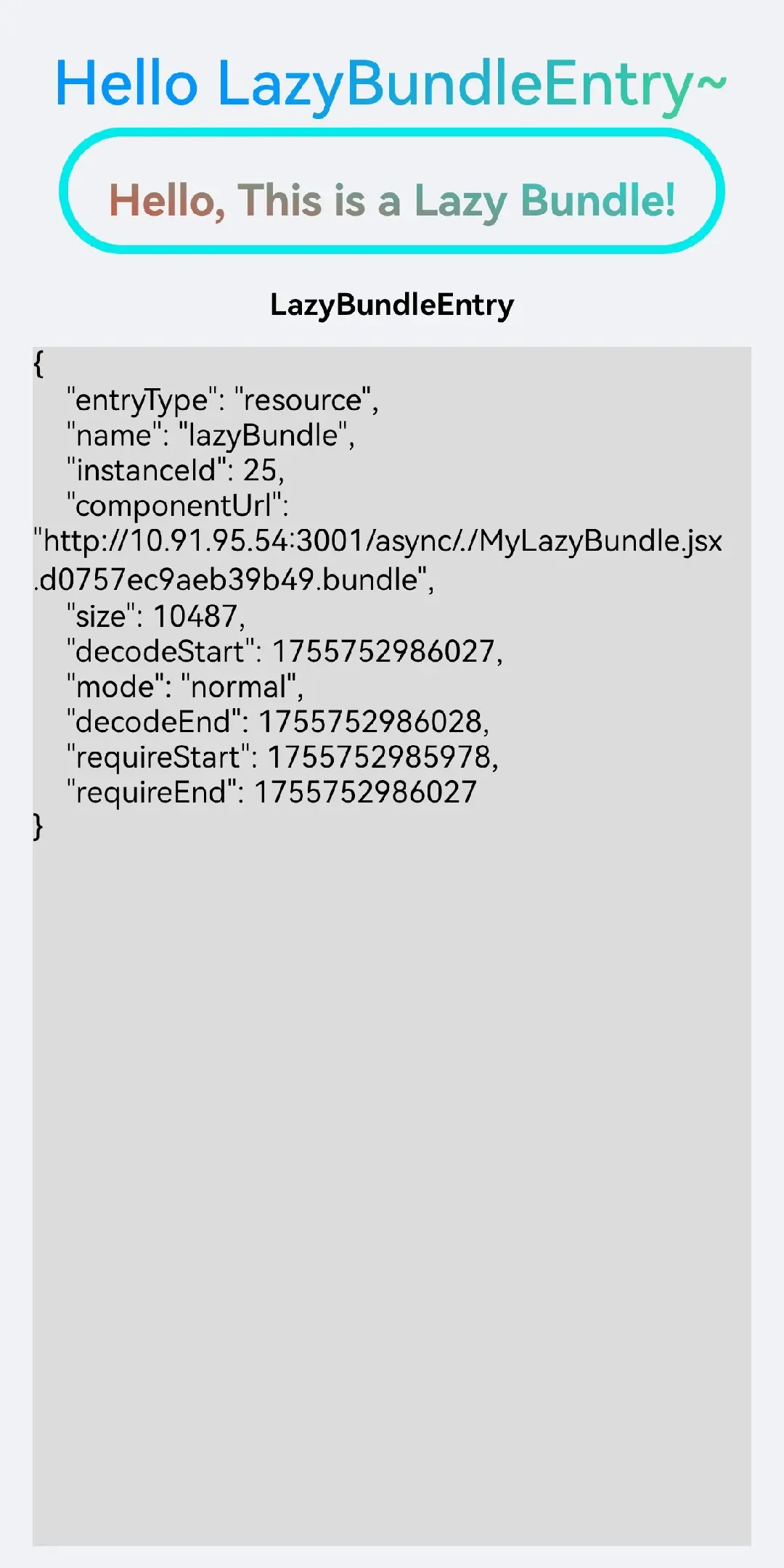LazyBundleEntry
Through lazy loading components, developers can render on demand, thereby improving user experience. LazyBundleEntry is used to record the performance data of lazy loading components and inherits from PerformanceEntry.
Example
This example demonstrates how to obtain a LazyBundleEntry.

Instance properties
entryType
The type of the performance event; the value for all instances of this class is fixed as resource.
name
The name of the performance event; the value for all instances of this class is fixed as lazyBundle.
componentUrl
The URL string used to load the lazy loading component.
size
The resource size of the lazy loading component, in bytes.
mode
The mode for loading the lazy loading component, with values: preload or normal.
sync
Whether the lazy loading component is rendered synchronously.
loadSuccess
Whether the lazy loading component was loaded successfully.
requireStart
The start timestamp for downloading the lazy loading component.This timestamp is a floating-point Unix timestamp (in milliseconds).
requireEnd
The end timestamp for downloading the lazy loading component.This timestamp is a floating-point Unix timestamp (in milliseconds).
decodeStart
The start timestamp for decoding the lazy loading component.This timestamp is a floating-point Unix timestamp (in milliseconds).
decodeEnd
The end timestamp for decoding the lazy loading component.This timestamp is a floating-point Unix timestamp (in milliseconds).
Compatibility
LCD tables only load in the browser